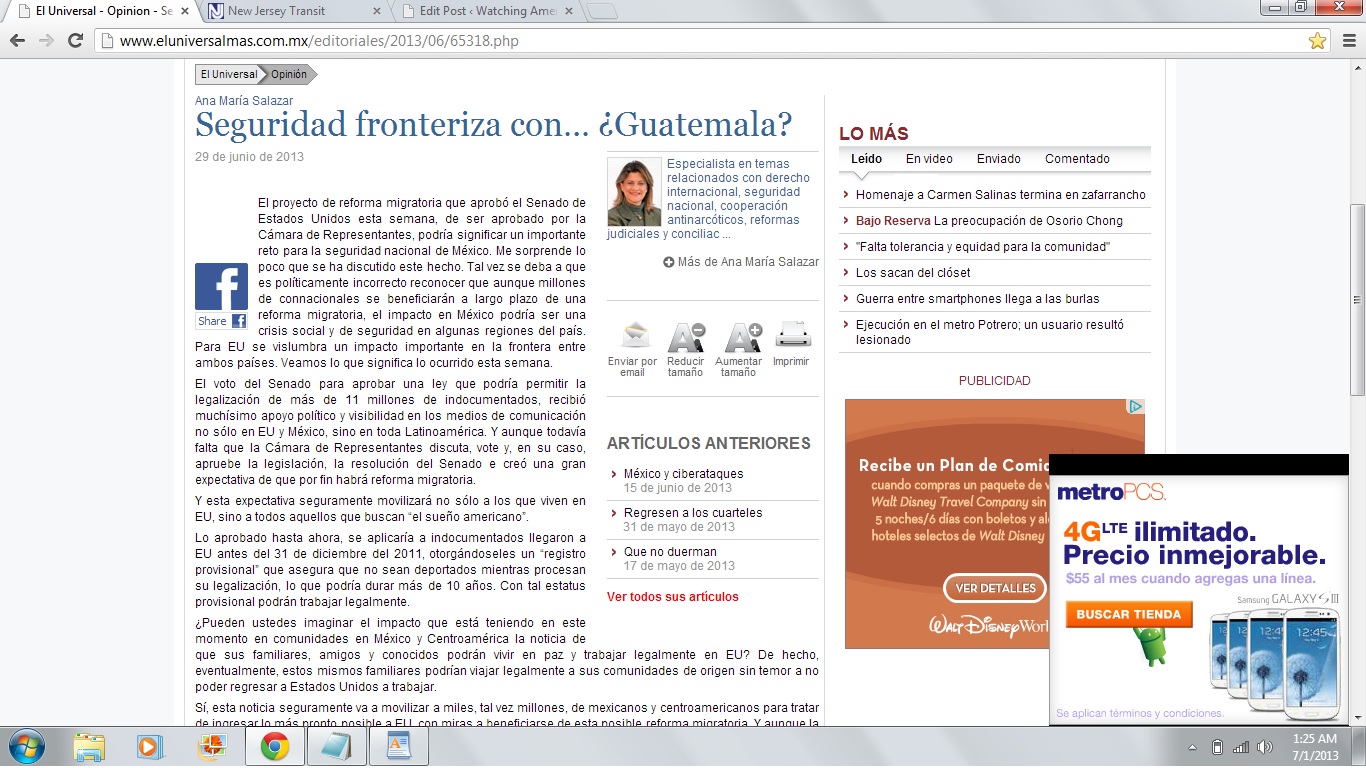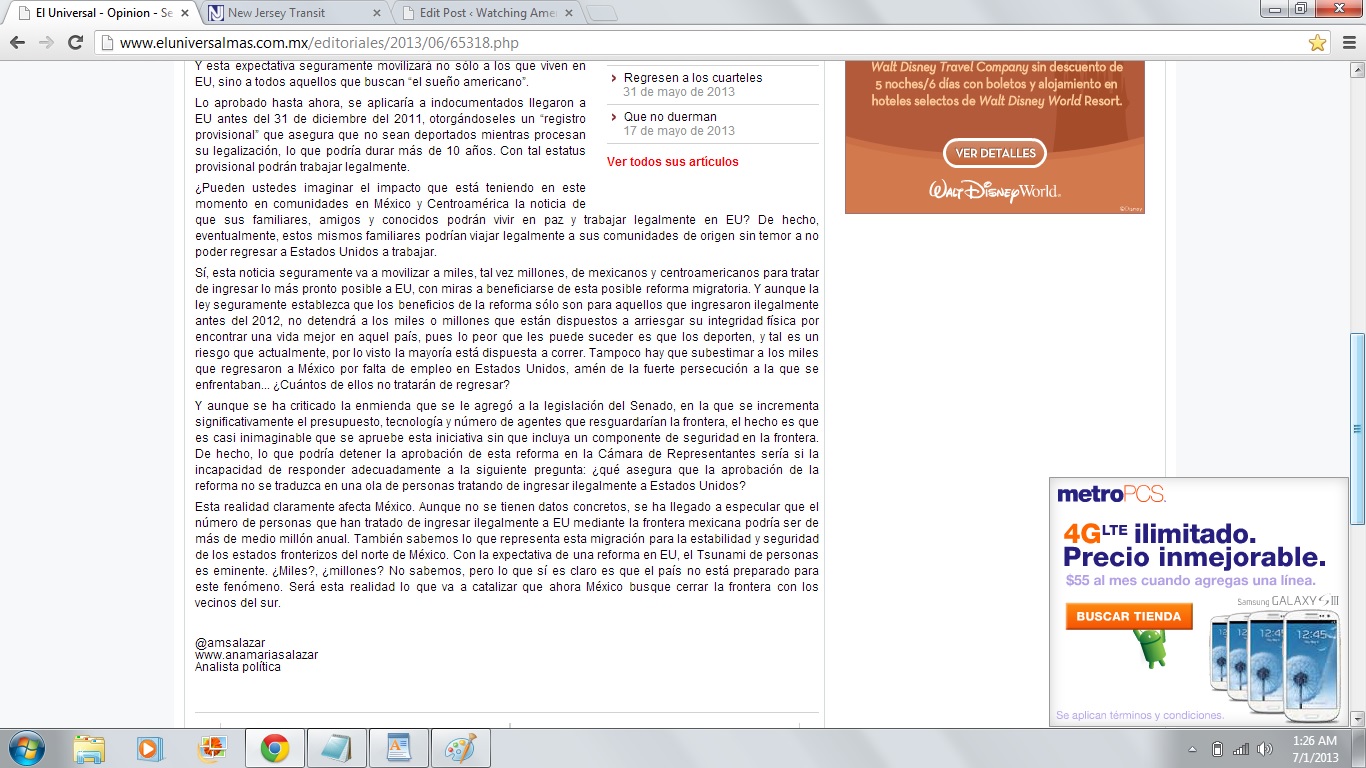Border Security with … Guatemala?
The Senate vote to approve a law that could permit the legalization of more than 11 million undocumented immigrants received a lot of political support and media visibility not only in the U.S. and Mexico, but in all of Latin America. And although the House of Representatives still needs to debate, vote and, in this case, approve the legislation, the Senate's resolution on the matter has created great expectations of there finally being some kind of immigration reform.
These expectations will certainly mobilize not only those who live in the U.S. but all in search of the "American dream."
As of now, the law would apply to undocumented immigrants who arrived in the U.S. before Dec. 31, 2011, granting them a "provisional legal status" that would assure they are not deported during the process of their legalization, which could last more than 10 years. With this provisional status they would be able to work legally.
Can you imagine the impact this news is having right now in communities in Mexico and Central America? Besides being able to work legally in the U.S., immigrants will be able to return to their communities in their birth countries without the fear of not being able to come back to the U.S.
The news is surely going to mobilize thousands — perhaps millions — of Mexicans and Central Americans to try to enter the U.S. as soon as possible. While the law would only establish benefits for those who entered illegally before 2012, that won't stop the thousands or millions that are willing to risk their physical well-being to find a better life in the U.S., as the worst that can happen is that the U.S. deports them, a risk that the majority seem to be willing to take. Let's also not forget about the thousands who have returned to Mexico because of a lack of employment in the United States, thanks to the fierce persecution they faced there. How many of them won't attempt to go back?
And although the amendment the Senate added to the legislation that significantly increases the budget, technology and number of agents guarding the border has been criticized, the fact is that it's almost unimaginable that this law would be passed without including an increase in border security. Actually, what could keep this reform from being approved in the House of Representatives would be the inability to adequately answer the following question: What's to say that this reform doesn't manifest into a huge wave of people trying to enter the United States illegally?
This situation clearly affects Mexico. Although there are no concrete figures, it is estimated that the number of people who have tried to enter the U.S. illegally through the Mexican border could be well over half a million annually. We know what this type of immigration means for the stability and security of border states in northern Mexico. With the expectation of a reform in the U.S., the tsunami of immigrants is imminent. Thousands? Millions? We don't know, but what is clear is that the country is not prepared for such a phenomenon. It's this situation that will now cause Mexico to start closing the border with its neighbors to the south.



